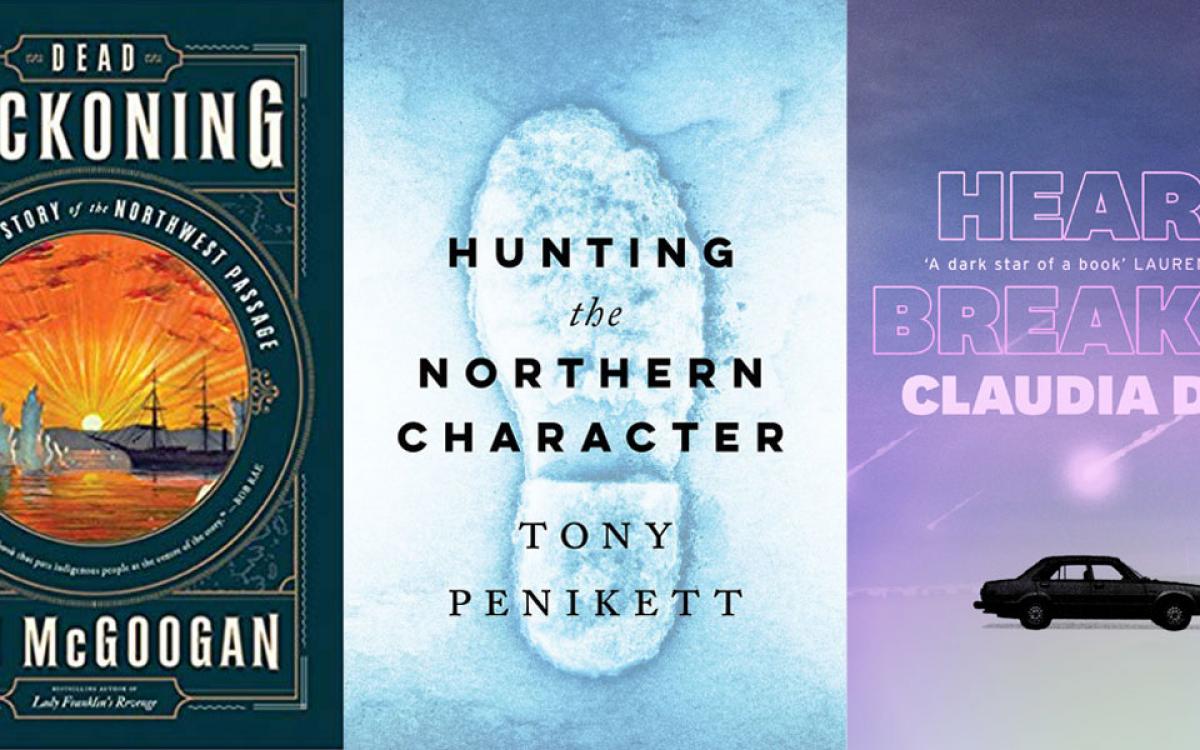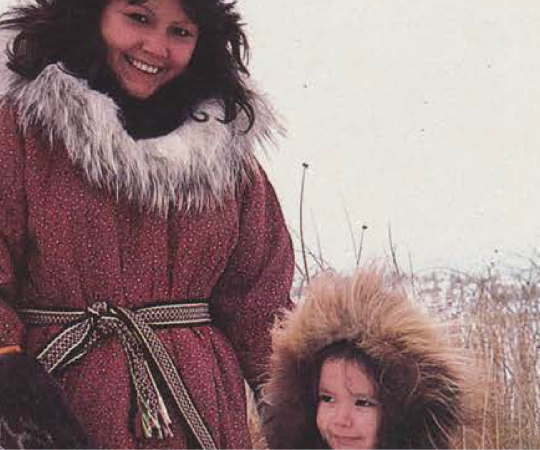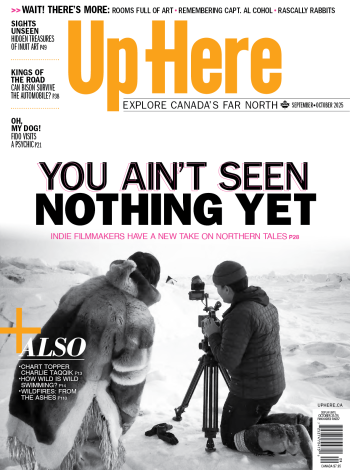Dead Reckoning: The untold history of the Northwest Passage
by Ken McGoogan
Harper Collins Canada
“I hope to restore the unsung heroes to their rightful eminence,” historian Ken McGoogan writes in the foreword of his most recent Arctic history, Dead Reckoning: The Untold History of the Northwest Passage. It’s an admirable aim—to shine a light on long-anonymous Inuit, Dene, and Cree guides, hunters, and families who consistently bailed out ill-prepared or ignorant explorers with fresh meat and furs to replace biscuits, salted pork, and wool poorly suited for the Arctic.
But if that’s the goal, it starts off on an awkward footing, with the first chapters devoted to the recounting of Martin Frobisher’s ignoble deeds and the mutiny of Henry Hudson, on their namesake water bodies. In both instances, only passing mention is given to the Inuit the expeditions encountered. Later, readers learn biographical details of many guides who kept some voyages from sure disaster—such as Tattannoeuck, whose diplomacy with the Siglit Inuit, McGoogan writes, surely saved John Franklin’s 1826 trip to the Arctic coast. Still, when leaders like Thanadelthur and Matonabbee are introduced, their accomplishments are mostly in service to the explorers who employed them.
Dead Reckoning is best viewed beside Pierre Berton’s The Arctic Grail, another popular history published in 1988 that documents the quests for the Northwest Passage and the North Pole from 1818 to 1909. McGoogan’s book provides a more comprehensive history—starting earlier and ending later. And he does credit by name the Inuit and Dene critical to the success (or at least survival) of expeditions, many of whom went nameless in Berton’s book, among others. He brings the Northwest Passage history into the 21st century, as he claims to do.
But as you read on, you begin to lose interest in the familiar stories of ship captains and start to wonder what life was like for the guides and translators before they came into contact with the explorers and how things changed in the immediate aftermath. Perhaps that will be the next comprehensive history of polar exploration for the canon.
-Herb Mathisen
Heartbreaker
By Claudia Dey
Harper collins
Set in a fictional isolated Northern community called the Territory, author Claudia Dey’s story is populated by characters sequestered from the world. The men are intoxicated in front of Drink-Mart; teenagers party around a bonfire in the cemetery; women deliver each other’s babies with no medical assistance.
The Territory is the remnant of a town created decades earlier by a mysterious cult leader. None of its residents have experienced life in the “rest of the world.” Dey’s narrative captures the ills of isolated and poor communities—inadequate housing and medical care, teen pregnancy, high unemployment. Her characters are endearing and lovable and tough. Duct tape is stored in medicine cabinets and they frequently reiterate the words of the Leader: “To complain is a form of self-entitlement; hardship is a matter of perception.”
The Territory’s residents are kept there by lies about the impossibility of escape. If you leave, children are warned, a steel wall will rise behind you and you’ll never be able to return to your family. The grim undertone of the book is that people are trapped by a lack of education. Despite the bleak representations of life in the Territory, Dey reminds readers that outsiders must not judge life in isolated communities. The story, driven by the search for a missing woman, the only resident who has ever been outside the Territory, shows how home and belonging lie in the hearts of those we love. This is a coming-of-age tale, a thrilling riddle and comment on love and family bonds that eclipse social injustices.
–Kate Covello
Hunting the Northern Character
By Tony Penikett
UBC Press
What does it mean to be a Northerner?
To Tony Penikett, a former Yukon premier, it’s more than embellished stereotypes seen on TV or in literature—the grizzled prospector living in a wall tent or stoic Dene padding through the bush in moccasins. After generations of colonial influence, government managers, teachers and social workers now outnumber traditional hunters, bush pilots and prospectors. More people shop at the grocery store than hunt or trap.
So what does it mean to be a Northerner? Penikett posits that every Northerner is displaced from somewhere, whether it’s a forced settlement from a life on the land or a voluntary move from the south. He suggests being a Northerner means understanding the juxtaposition between Indigenous and settler cultures—and the apparent difference in every political, economic and social transaction.
He points to a planning exercise from the late 1980s and early 1990s called ‘Yukon 2000’, which brought political “foes” together to discuss what they agreed upon rather than what they didn’t. This subtle approach follows the Indigenous tradition of consensus government, which is fundamentally different from the combative British-style parliament. The exercise illustrates the theme of the book: effective political, economic and social negotiations must incorporate both settler and Indigenous traditions and sensibilities.
Penikett’s well-researched and anecdote-rich book is a bold attempt at bridging misunderstanding in the ‘us versus them’ narrative: Indigenous versus settler, North versus south, territorial legislator versus chief. He argues Northerners are equipped to manage their own affairs and the federal government should step aside. Penikett examines the values, social history and political tendencies of all Northerners, and in doing so, presents a compelling campaign for a democratic Arctic and a social peace where chiefs and legislators govern together. He believes in a bottom-up approach to territorial governance—an effective local political system somewhere between colonial-style government and fireside chats.
-Kate Covello
(Correction: This story initially included incorrect spelling for Thanadelthur and Matonabbee. Up Here apologizes for the error.)










